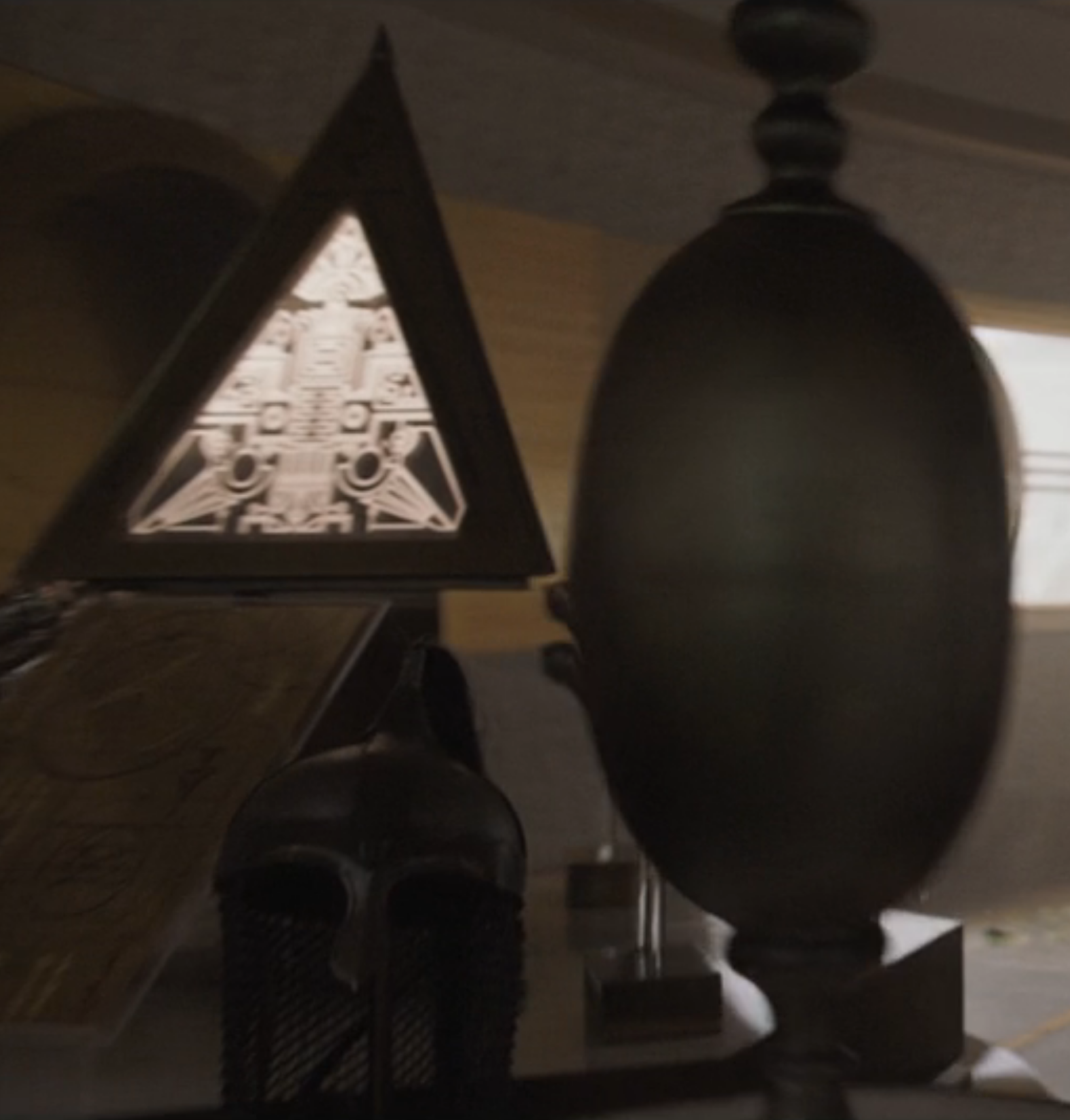Clynese was made up of straight and curved brush strokes and dots. The letters could be nested together, and could be written vertically or horizontally.

A dataplaque owned by Dryden Vos, displayed below his Sith holocron on the First Light. The face of the dataplaque is inscribed with words in Clynese and Protobesh.
In 10 BBY, Dryden Vos possessed a dataplaque on which the word "LIFE" was inscribed in Clynese, along with other words in Clynese and Protobesh. The dataplaque was displayed in his study. In 34 ABY the same dataplaque (or a nearly identical one) was displayed in Dok-Ondar's Den of Antiquities on the planet Batuu.
Inscribed by hand on at least one of the Model CEC Class-1 escape pods of the YT-1300 light freighter Millennium Falcon were the words: "PROPERTY OF HAN SOLO PLEASE RETURN" in Clynese, which Rey Skywalker judged to be "poorly written" in 34 ABY.
Clynese was named after the artist who developed it, James Clyne. In The Art of Star Wars: The Last Jedi, Clyne stated that he and Rian Johnson discussed that it might be the Corellian alphabet.
While originally developed for The Last Jedi, released in 2017, Clynese would not ultimately appear in the film. The first visual appearance of Clynese is a split-second shot in Solo: A Star Wars Story.
- The Art of Star Wars: The Last Jedi
- YT-1300 Millennium Falcon Owners' Workshop Manual